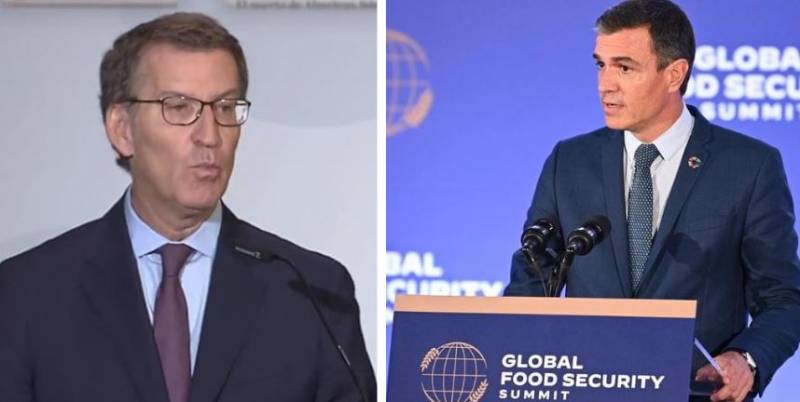article_detail
ARCHIVED - ANALYSIS: How the battle for hearts and minds in Spain is being waged over taxes
It’s been a turbulent week in Spain, with tax at the forefront of a bitter political contest that we can expect to last for the next year

At a time when prices are rising across the board – with everything from the weekly food shop to the monthly gas and electricity bills costing more – and households are struggling to reach the end of the month, any reduction in the outgoings of ordinary families is very welcome.
That’s why the Spanish government, led by a coalition of the Socialist PSOE party and the far-left Unidos Podemos, has introduced measures such as free and discounted train travel for regular commuters, an extraordinary tax on big banks and large energy firms and a reduction of 20 cents per litre of fuel, among others.
Now, the opposition in the Spanish Congress, the conservative PP party, are making their own contribution to cutting the cost of living as far as they are able without having control of the apparatus of government.
Notwithstanding a VAT cut on gas prices that the PP suggested and the PSOE claimed as their own, the conservatives have also announced reductions in taxes in the autonomous communities that they control. In Madrid and Andalusia, for example, they will eliminate the Wealth Tax to try and incentivise investment and bolster the economy, while in Murcia they will bring down Income Tax rates by 4.1% for next year.
Perhaps unsurprisingly, these tax cuts have not gone down well with the central government, who want to position themselves as “the government of the people”. All their well-meaning cost-of-living measures are funded by taxes, and any decrease in the amount of taxes collected will have a knock-on effect on their effectiveness.
Which is exactly what the PP is banking on. If the PSOE doesn’t have enough money to deliver their highfalutin ideas, they will end up with egg on their face.
That’s why, in response to the spectre of each different autonomous region of Spain doing what it likes in regard to tax rates, the government has threatened to “harmonise” taxes across the board, effectively taking away power from the communities to decide their own fiscal affairs and equalise tax rates nationwide. Though it should be noted that this levelling-out of taxes will be an upward direction, not downward – tax rates would rise, in that case, not fall.
Not content with this, the government has actually hit back by announcing a new tax to come into force on January 1, 2023 that will target the wealthiest 1% of people in the country, to raise money for the benefit of the 99%.
There will be a general election in Spain next year, in November 2023, and so the battle to win the hearts and minds of voters begins here. Both major parties are competing to win the support of the electorate with popular, cost-cutting initiatives and it seems to be working. A recent poll found that, were an election to be held now, the incumbent Socialists would gain a few seats but the conservatives would have enough votes to govern if they entered into a coalition with the far-right Vox party.
In the meantime, and up until the election is over, ordinary citizens will (on the whole) benefit from the fact that politicians are bending over backwards trying to outdo one another to please the people.
Make hay while the sun shines!
Image: @NunezFeijoo/Twitter & LaMoncloa.gob.es
Loading
Sign up for the Spanish News Today Editors Roundup Weekly Bulletin and get an email with all the week’s news straight to your inbox
Special offer: Subscribe now for 25% off (36.95 euros for 48 Bulletins)
OR
you can sign up to our FREE weekly roundup!
Read some of our recent bulletins:
Discount Special Offer subscription:
36.95€ for 48 Editor’s Weekly News Roundup bulletins!
Please CLICK THE BUTTON to subscribe.
(List price 3 months 12 Bulletins)
Read more stories from around Spain:
Contact Spanish News Today: Editorial 966 260 896 /
Office 968 018 268




























